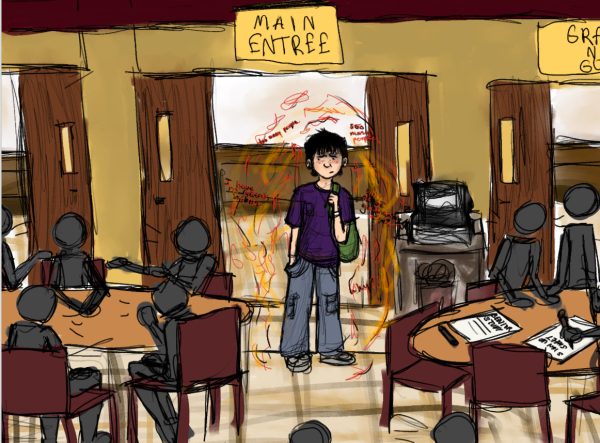The problem isn’t midterms, it’s communication
January 16, 2015
An adult’s concept of a student is clouded with misconceptions and prejudices guided by his or her own experiences and “better judgment” for how the adolescent should govern themselves.
One blinding aspect of this relationship is the ever-present lack of communication. The adult may execute a decision without the effect being relayed to the child with explanation, therefore producing a gap festering with tension and resentment. This situation applies to the recent change in the midterm exam here at Algonquin.
Faculty must share information pertaining to the midterm with students.
In previous years, the “midterm” was a test, scored as any other exam. It analyzed a student’s knowledge of the first two terms. It was only required of half-year courses while full-year courses could or could not administer one, leaving this decision to the teacher. This year, however, the midterm requirement has been altered. It is now required by all classes and counts for 10 percent of a student’s final grade. With the final exam, 20 percent of the final grade will be determined by two tests.
I have not spoken to one student who has exhibited favor or even acceptance to this new system. I myself was enraged when I first heard this idea. However, after some reasoning, I decided to approach my teachers about this issue. And their explanation changed my opinion. Our school is not implementing an arbitrary, belligerent exam to uproot our grades and GPAs. This system is practiced in colleges across the nation. This is preparation for beyond high school. Although 20 percent of a final grade is a significant portion, it is a reality that such exams exist in colleges. These four years here at Algonquin are practice for what is beyond the sheltered schoolhouse walls. I am willing to accept almost any method that will benefit me.
The issue remains that students are hearing this altercation through the so-called “rumor mill” which creates confusion and suspicion. Faculty must share information pertaining to the midterm with students, and hand them a thorough explanation of the reasons for its existence. Though it can appear so at times, we adolescents are not terribly unreasonable and most I know will appreciate the practice this midterm provides. The absence of sufficient communication has plagued the generation gaps for years and instilled a hesitation between schools and students. Algonquin must break this trend, guiding students towards realizing the value of a midterm.





















